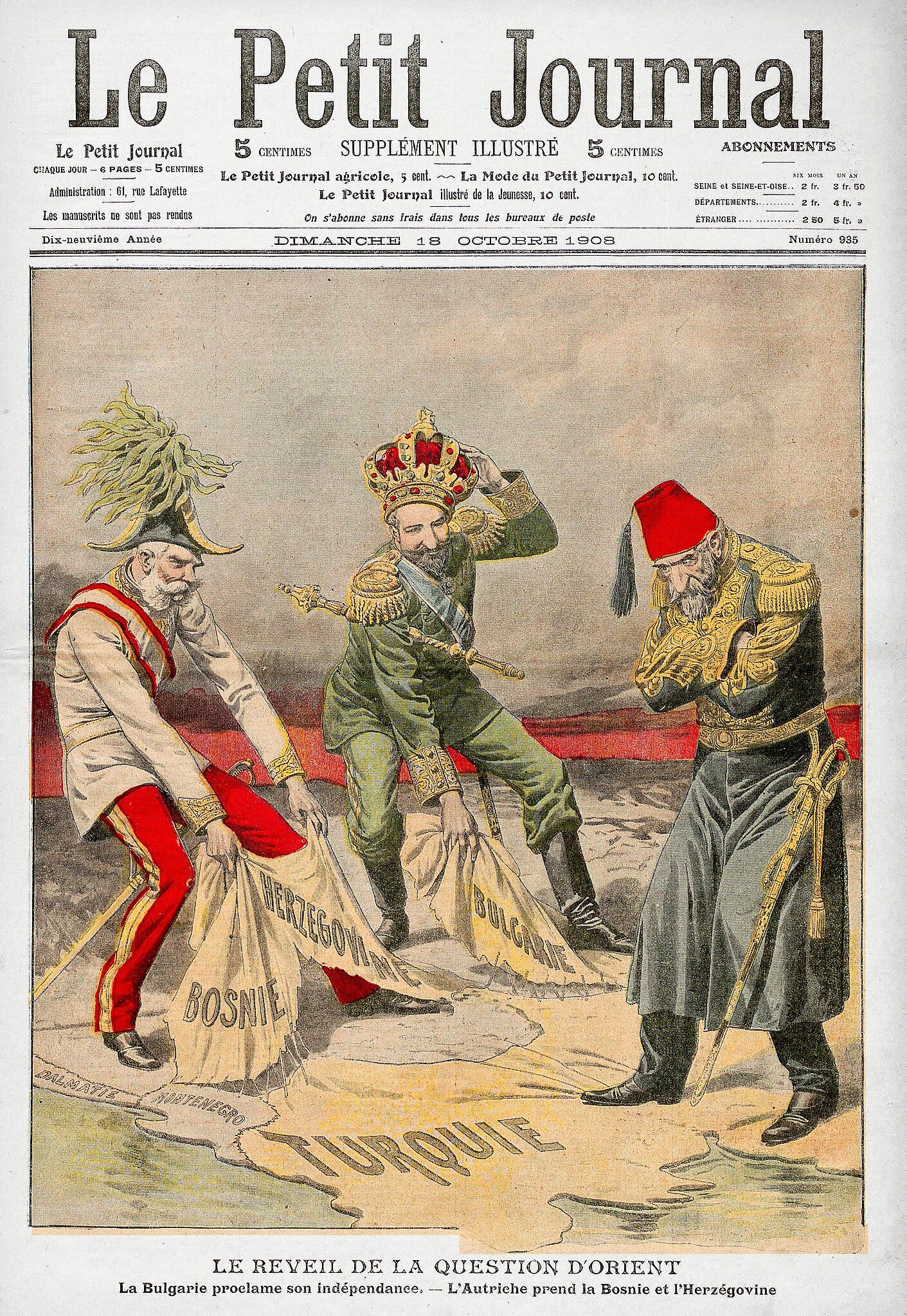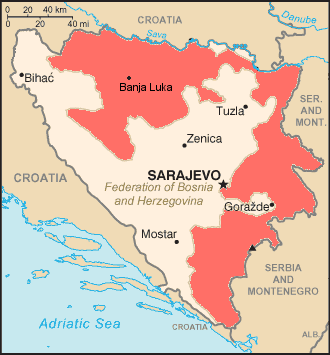Srebrenica, Gaza, and the Destructive Effects of Ethno-Nationalism
30 years on, the world seems to be continuing a concerning trend towards more ethno-nationalist thinking.
Every year around this date, the same feelings arise. Those of disgust, those of horror, and of tragedy. But the last two years have been different.
Because the exact same tragedy is repeating itself en masse, in Gaza.
This gives the remembrance of Srebrenica a certain weight of guilt, knowing that even as we vowed ‘never again’ after Bosnia, we can do little, if anything, to stop the deaths in Gaza.
And to me, it finally makes sense.
I wondered my whole life, ever since I was young enough to form an opinion on the war in Bosnia from what my father told me, from what happened to my own family:
How could the world sit back and watch this happen? And not intervene?
People literally watched it on the screens of their TVs. The Bosnian War was one of the first major conflicts to be aired on television.
Here we are, in 2025, doing the same. Our hearts ache for our brothers and sisters across the world, from Gaza to Sudan, to Pakistan, Afghanistan, and beyond.
Back in the 1990s, the world was a little different. If you wanted to, you could go and volunteer as a fighter to fight for whatever cause you were aligned with.
This is why the mujahideen established a strong presence in Bosnia, Chechnya, Afghanistan, and eventually even in Kosovo.
But the 21st century has demonised any armed resistance, and at this point, this has been reduced to simply a distant memory.
The truth about Srebrenica
However, on this day, 30 years ago, 8372 Bosniak men and boys were murdered in the span of a few days. Just imagine the sheer amount of firing power and logistical planning that such an act of genocide required.
If you look at the maths, that’s at least 174 people being murdered per hour, for 48 hours. (The genocide took place from the 9th to the 11th of July)
Their only crime? Being Muslim.
There is no other reason why, on those dark summer days of July in 1995, Ratko Mladić decided to coordinate and orchestrate this mass act of genocide.
Mladić, who is now serving out his life sentence for his key role in the Bosnian genocide, is 83 years old, rotting in a cell, thank God.
As he closed in on the small town of Srebrenica, which was 76% Muslim pre-war, he proudly declared that he was taking over the town for the Serbs.
This is a direct quote of Mladić recorded on video as he entered the area deemed a ‘UN safe zone’.
“Here is the village of Plane, it used to be Turkish. Now we will go toward it, let our Serbs see what we have done to them, how we took care of the Turks... we thrashed the Turks. If the Americans and English, the Ukrainians and Canadians in Srebrenica, in the meantime, it’s the Dutch, would not protect them, they would have disappeared from this area long ago . . . See what a village they got. Look there, Look there,” [Mladić adds, as the camera shows destroyed homes] “Should I slow down a bit so you can film them? . . . . Film it. Look what a house this Turk motherfu*ker had! This is a Turkish house . . . This was a Turkish house. The one over there was Turkish, and that one, all of them.”
Let me dissect this quote for you.
The historical background to the genocide

For Mladić and the other radicals of the Serb paramilitary group named ‘The Army of Republika Srpska’ (Војска Републике Српске), the war served as their chance to take revenge against the ‘Turk’.
The ‘Turk’ in this context, however, did not exist. This is what they referred to Bosniak Muslims as, despite being ethnically Slavic and European. It was used as a derogatory term for them, to symbolise the backwards nature of Muslims.
From the 1980s onwards, Serb politicians who dominated Yugoslavia started to spread harmful nationalist propaganda. They used pro-Serb nationalism to invoke a deep underlying hatred of Muslims that had existed since the latter Ottoman period.
When Serbia, Bosnia, Montenegro, and other Balkan nation states sought independence from the Ottoman Empire in the Balkan wars, the nationalism of these countries tied anti-Turk hatred to its foundation.
This meant that anyone who resembled the Ottoman Turks, in religion, customs, or language, were instantly labelled as foreign or alien to their land.
Thus, the label ‘Turk’ was applied to Bosniaks, as they were Muslims and obviously sided with the Ottomans, despite being natives to the lands they were driven from.
During the 1992-95 war, this term was revived, and as we see in the quote above from Mladić, his reason for ethnically cleansing the lands around Srebrenica was to take revenge on the ‘Turk’ for what they did to Serbs in the region for 500 years.
Of course, any historian will tell you this is a rewritten narrative of history, propagated by pro-Serb politicians to fuel ethnonationalist separatism.
Gaza and the resurgence of ethno-nationalism in zionist form
One of the most dangerous forms of ideology in the modern day is that of ethno-nationalism.
Ethno-nationalism is defined as:
a form of nationalism wherein the nation and nationality are defined in terms of ethnicity, with emphasis on an ethnocentric approach to various political issues related to national affirmation of a particular ethnic group.
In Yugoslavia, the nationalist movements by Serbs and Croats lent themselves to splitting and ceding Bosnia to their respective ‘mother states’, Serbia and Croatia.
This form of nationalism is often the driving force of genocide, as people get so blinded by their hatred for the ‘other side.
When it comes to Israel’s war on Gaza, we see the exact same thing repeating itself.
The Jews, who class themselves as an ethnic group, have rallied around the nationalistic notion of Zionism, which seeks to assert Israel over all that remains of Palestine, and more.
What we see happening in Gaza today is nothing short of a reflection of this ethno- nationalistic colonialism that has plagued the region since the Jews arrived en masse after World War II.
The genocide in Gaza is occurring at a much faster and deadlier rate. Over 57,500 Palestinians have been murdered in a span of just less than two years.
Bosnia experienced 100,000 deaths in three years.
Just as Republika Srpska was forcefully established on the blood of Muslim Bosnians as they were ethnically cleansed from their lands, Israel is still clearly trying to do the same in Gaza.
The whole of Palestine, for that matter, strikes eerily similar circumstances to how Republika Srpska was founded, by illegal genocide and settler-colonial practices.

Despite occupying different geographies and times, the genocides in both Srebrenica and Gaza share strikingly similar outcomes and unlearned lessons. The international community is showing once again that it doesn’t care, nor will it do anything to put a halt to what it deems a legitimate response to terrorism.
The humanitarian charlatans of organisations like the UN, who sit in their offices writing reports on peacekeeping endeavours and human rights abuses, are again showing their utter uselessness.
Just as Slobodan Milošević, Radovan Karadžić, or Ratko Mladić were brought before the court and sentenced for their war crimes, Netanyahu must also face the court.
Justice, however long it takes, eventually catches up with perpetrators of these atrocities.
It happened to the Nazis post WW2, it happened to the Serb criminals in the early 2000s, and it will happen to the current government of Israel.
- Alen Bašić, London, 11.07.25.




